Court hears court case challenging the integrity of the state’s vote counting machines
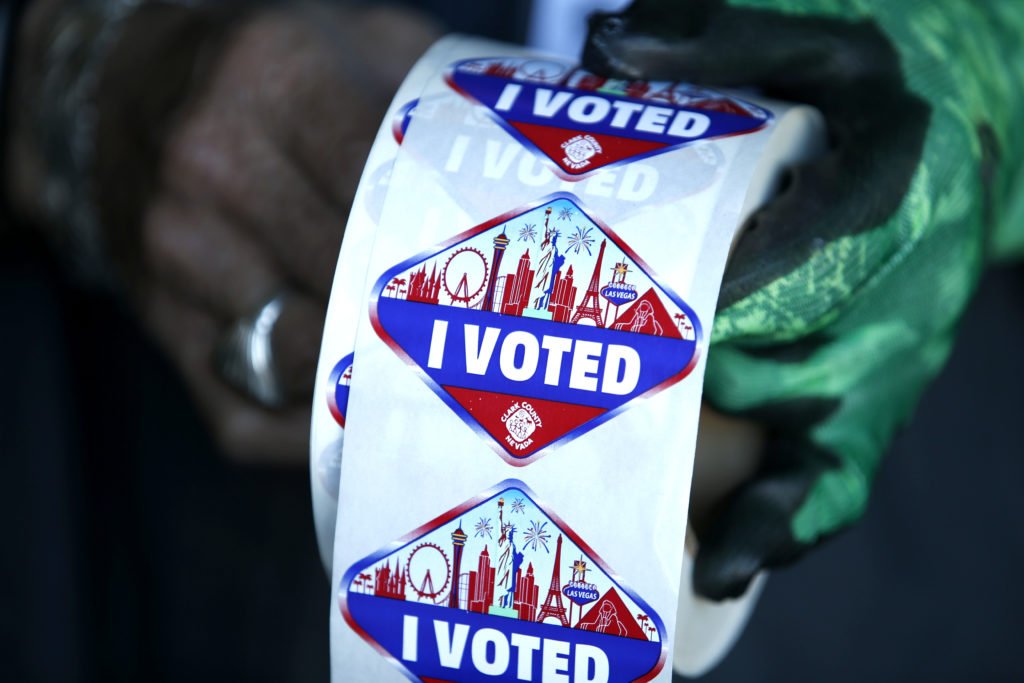
On Tuesday, a Montgomery judge heard a lawsuit seeking to end the state’s use of electronic vote counting machines. The plaintiffs claim that the use of electronic vote counting machines adds the ability for election integrity to be undermined by bad actors and creates an unacceptable layer of inaccuracy in Alabama elections. Allegations that the state strongly denies. The case is being brought by Focus on America (FOA) State Rep. Tommy Hanes, Dr. David Calderwood, and then gubernatorial candidate Lindy Blanchard. Blanchard has since left the case because she says that she supports the full Republican ticket and that the case is being used to advance a write-in campaign. Former Alabama Governor Don Siegelman has joined the lawsuit in her place. The Alabama Attorney General’s office filed a motion asking that the Judge dismiss the case. Alabama Today spoke with write-in gubernatorial candidate Dean Odle about the court proceedings. “The judge decided to hear the case,” Odle stated. Odle said that the case is about “cybersecurity.” “The most sophisticated weapons the U.S. military has can be compromised,” Odle commented, quoting retired Col Sean Smith, who was an expert witness for the plaintiffs. “Focus on America wants an election process that the voters of Alabama can have confidence in and that accurately counts every legal vote cast,” Focus On America spokeswoman Rebecca Rogers said in a statement. “Knowing that our machines can be hacked even when they are not connected to the internet, we believe that right now, the best option for a fair vote count in November is to put the machines aside and hand count the ballots. We have some serious concerns about the election machines in use all across the state, which is why we joined State Representative Tommy Hanes’s lawsuit against Secretary of State John Merrill and the Electronic Voting Committee.” Focus on America is allied with My Pillow founder Mike Lindell and Lindell’s attorneys played a prominent role in the court hearing. Lindell has drawn national attention for his claims that the 2020 presidential election was ‘stolen’ from then President Donald Trump. “The machines by ESS (the systems that the state of Alabama purchases) and Dominion are the worst,” Odle said. Secretary of State Merrill has stated that the vote counting machines that the state uses do not connect to the internet and do not even have modems where they could connect to the internet. “That’s what he says,” Odle replied. “The laptops they use to tabulate the vote, those very computers have both wife and Bluetooth.” “Someone could alter those machines with a program on a thumb drive,” Odle stated. “There are 80 to 200 vulnerabilities,” in Alabama’s election processes, Odle said the expert witnesses testified. Odle said that the plaintiffs’ experts told the court to, “Melt them down and bury them. They cannot be secured.” Odle and Blanchard were among eight Republican candidates defeated by incumbent Governor Kay Ivey in the May 24 Republican primary. On Thursday, the state Alabama Electronic Voting Committee went into executive session to discuss the pending legal case. Alabama Today spoke with Secretary of State Merrill on Friday. “We don’t comment on pending litigation,” Merrill said. “What I can say is that Alabama has the safest, most transparent, and accountable voting process in the nation. And that is not just us saying it, but an independent national review that looked at all the from other states in the country. We believe that when the court reviews all of the evidence that they will come to the same conclusion.” To connect with the author of this story, or to comment, email brandonmreporter@gmail.com.
Hearing on voting machine lawsuit is today

A judge will hear a motion to dismiss a lawsuit challenging the use of vote counting machines today in Montgomery at 9:00 a.m. The lawsuit was originally brought by Republican primary candidate Lindy Blanchard and State Rep. Tommy Hanes. The candidates had originally sought to bar the use of the vote tabulation machines in the May 24 Republican primary. Both Hanes and Blanchard lost in the primary. Hanes, the incumbent, lost to challenger Republican Mike Kirkland 3,707 48.4% to 3,950 51.6%. Kirkland is unopposed in the general election. Blanchard finished second to incumbent Gov. Kay Ivey, but the popular incumbent received 54.8% of the vote in the primary, besting Blanchard and seven other primary opponents combined to avoid a Republican primary runoff. No incumbent governor in Alabama has lost their party primary since George C. Wallace beat incumbent Gov. Albert Brewer in the 1970 Democratic primary. Three incumbents have lost general elections. Failing to block the machine tabulation of both the primary and primary runoff votes, the lawsuit is now just challenging the use and accuracy of the machines in general. Blanchard has left the lawsuit, which is being supported by My Pillow founder and CEO Mike Lindell. Former Gov. Don Siegelman has taken Blanchard’s place in the lawsuit. Siegelman, the last Democratic governor in Alabama history, maintains that he actually won the 2002 general election to then-Congressman Bob Riley. The Republican Party has won the last five gubernatorial elections, and incumbent Gov. Kay Ivey is expected to win re-election on November 8. The Alabama chapter of the ultra-MAGA group Focus On America (FOA) is continuing to support the lawsuit. Supporters and members of the group are being asked to attend Tuesday’s hearing to show support. Signs will not be allowed in the courtroom. Secretary of State John H. Merrill has maintained that the vote counting machines, which do not connect to the internet, are both safe and accurate. Merrill said in a statement after meeting with Lindell, “Every Alabamian should be proud that Alabama was recognized as the gold standard for election administration for the first time in our state’s history by the Concerned Women for American Legislative Action Committee. We will continue to work with those like Mr. Lindell and other concerned citizens to provide complete transparency.” Alabama Attorney General Steve Marshall has filed a motion to dismiss the lawsuit citing a lack of grounds. If the motion to dismiss is denied, the case could move forward to the trial stage in the coming weeks. Merrill maintains that replacing the vote tabulation machines with hand counts by poll workers, like Russia and some countries still use, will slow the vote counting down and add an opportunity for potential fraud as well as mistakes by the human vote counters. To connect with the author of this story, or to comment, email brandonmreporter@gmail.com.
John Merrill: Let’s acknowledge how far we have come
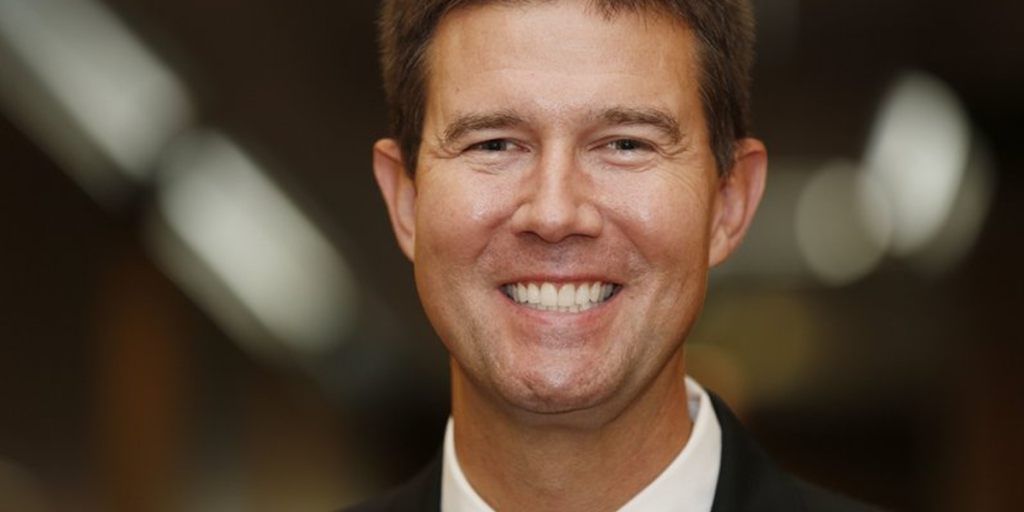
When discussing voting rights, some individuals and special interest groups focus on the Alabama of 1962, but they never acknowledge the Alabama of 2022 and the great progress we have made in our state. They attempt to use our state’s troubled past as justification for their present political agenda. These folks are entitled to their own opinion, but they are not entitled to their own facts. Today, Alabama has been called the gold standard for election administration by three separate entities, and our office works each day to ensure that every eligible Alabamian is registered to vote and that every voter can obtain a valid government-issued photo ID. Although we are always looking for areas of improvement, it is important to note that improvement is not weakening our election integrity measures. My goal has always been to make it easier to vote and harder to cheat. When administering the election process, officials must properly balance voter access and election integrity. We have found that proper balance in Alabama, and that assertion is supported by the empirical data. Since the beginning of my term in 2015, we have registered 2,113,006 new voters, which brings the total number of registered voters to 3,665,924, and we have set records for voter participation for both Primary and General Elections. At the same time, we have strengthened our election security measures by implementing the 2014 Photo Voter ID law. In conclusion, let me say that it is important to remember the history of voting rights in our state, but we should also acknowledge the great strides and accomplishments, as well. John Merrill has been the Secretary of State for Alabama since 2015.
State awards death benefit claims to 15 employees for on-the-job injuries including 11 who died from COVID-19
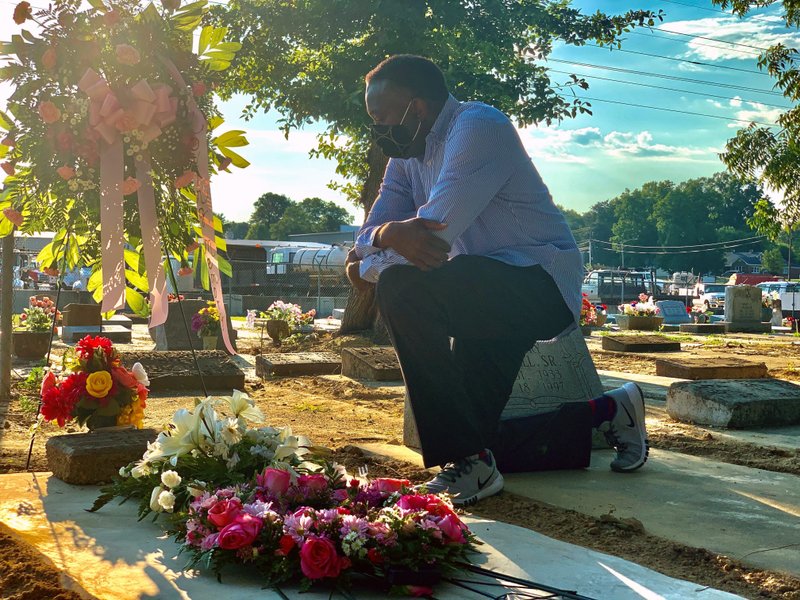
The State Board of Adjustment has approved 15 claims for the families of law enforcement officers and firefighters who died as a result of job-related injuries or illnesses. Eleven of those deaths were a result of COVID-19 contracted while on the job during the global pandemic. Juan Manuel Gomez-Lopez was a Pelham Police officer who died from COVID-19. His widow received $126,072. Brandon Wyatt Ard was an Orange Beach Police officer who died from COVID-19. On October 27, 2021, his family’s claim was denied. The Comptrollers reversed that decision and voted to pay his daughter’s claim of $126,072. Buddy Ray Crabtree was the Police Chief of Ider. He also contracted and died from COVID-19. The family of Chief Crabtree claim was also initially denied compensation in February. That decision was reversed at the August meeting, and the Board voted to pay his widow $126,072. Steven Ray Finley was an investigator with the Madison County Sheriff’s Office. He also contracted and perished from COVID-19. In February, the state rejected the claim. That decision was reversed, and his widow received $134,897. Selma Police Officer Marquise Moorer was shot and killed on duty. He was ambushed at his home, returning to eat lunch. His mother received a death benefit of $124,331. Michael Keith Morgan was a corporal with the Cherokee Sheriff’s Department. He died from complications from COVID-19. In March, his family’s claim was denied. That decision was reversed, and the board voted to pay his widow $126,072. Harry Marvin Hutchinson Jr. died from COVID-19 while working for the Blount County Sheriff’s Department. His widow was awarded $126,072. Larry Vincent was a firefighter who died from organ failure due to cancer he contracted from exposure to firefighting foam. His widow received $134,897. Darryl Wayne Fortner was a Vestavia Hills Police officer Darryl who died from complications as the result of contracting COVID-19 in the line of duty. His widow received $134,897. McAdory Fire Chief Jeff Ray Wyatt died from cardiopulmonary arrest. His widow was awarded $134,897. Brice Jordan was a firefighter with the Georgia Mountain Volunteer Fire Department. He was also killed by COVID-19. His widow received $126,072. Shannon Marie Jordan was also a member of the Georgia Mountain Fire Department who died from COVID-19. Her adult children were awarded $126,072. She was the daughter of Brice Jordan and went on a ventilator just two days after his death from the same illness. Lieutenant Justin Keith Roberts was an Anniston firefighter with 20 years of service who died from COVID-19. His widow received $126,072. Doyce Julian Thomas Sr. was a Huntsville firefighter who died from cancer. His widow received $134,897. Ricky Lee Woods was a longtime member of the Sumiton Volunteer Fire and Rescue Squad who died from COVID-19. His father was awarded $124,331. COVID-19 claims were originally not a cause of death that the state would pay a claim for, even if it could be determined that the victim contracted the illness doing their duties for the state. The legislature passed House Bill 488 during the 2022 legislative session to change that retroactively. The State Board of Adjustment hears claims against the state from citizens and vendors. The Board of Adjustment is also designated in state statute as the “awarding authority” for benefits to families of police officers and firefighters killed in the line of duty and National Guardsmen who perish while “quelling a riot, rout or civil disturbance.” The members of the Board of Adjustment include State Auditor Jim Zeigler, State Treasurer Young Boozer, State Finance Director Bill Poole, and Secretary of State John Merrill. “The families of law enforcement and state employees who die in the line of duty deserve compensation,” said Zeigler. “It is up to us on the Board of Adjustment to determine if it was a job-related death.” The State Board of Adjustment decides all claims against the state. It approved the claims in an August 17 meeting. To connect with the author of this story, or to comment, email brandonmreporter@gmail.com.
Jerry Carl cosponsors American Confidence in Elections Act
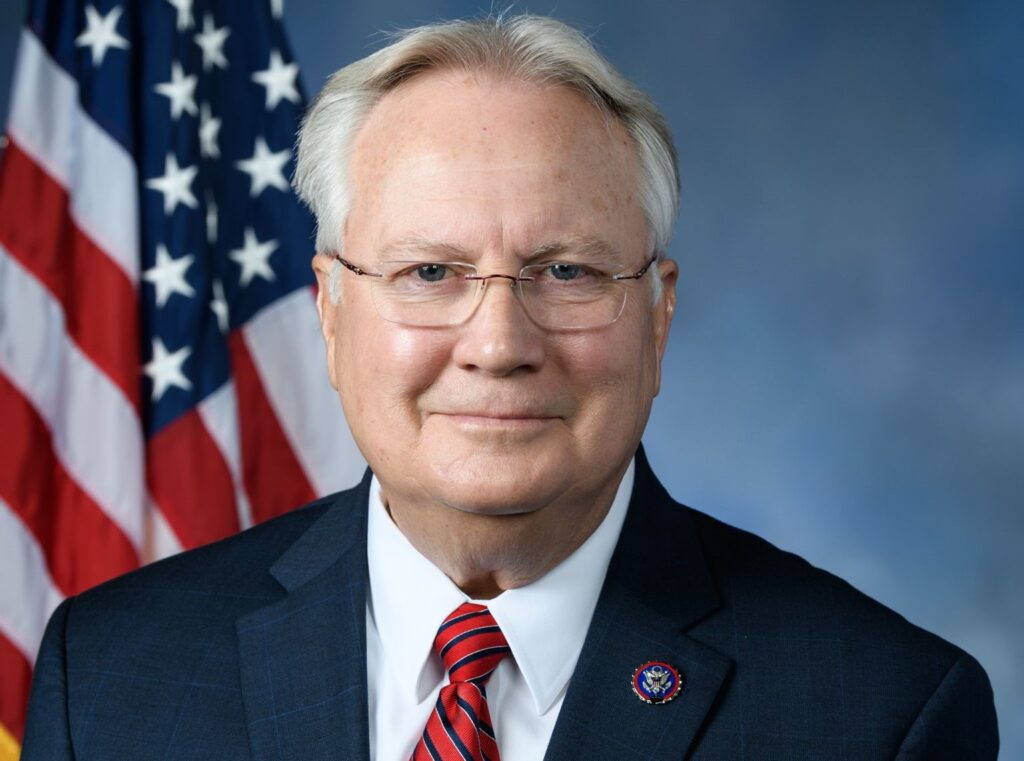
Last week, Rep. Jerry Carl announced that he cosponsored the American Confidence in Elections (ACE) Act. The bill addresses issues in our nation’s federal elections. Representatives Rodney Davis and Bryan Steil introduced the ACE Act, which has been characterized as the Republican alternative to the For the People Act (H.R. 1) and the John R. Lewis Voting Rights Advancement Act (H.R. 4). Carl expressed the need to restore election integrity. “There’s no doubt the 2020 elections had issues, which is why the ACE Act is critical to restoring our election integrity by providing states with important tools to help with the delivery of ballots, verification of signatures, using voter ID, giving observers access to the process, updating voter lists, and conducting post-election audits,” Carl stated. The ACE Act prohibits: Non-citizens from voting and allows states to use REAL ID as proof of citizenship Same-day registration and ballot harvesting Federal funds for payments in support of congressional campaigns Contributions and donations by foreign nationals in connection with ballot initiatives Funding for a potential “Disinformation Governance Board” The ACE Act requires: Photo ID to vote in person or request an absentee ballot Annual list maintenance “With the Democrats’ constant attacks on the integrity of our federal elections, I’m proud to join my colleagues on this important effort to strengthen our elections and guarantee their security. Our elections should always be free, fair, and secure, and this legislation will go a long way to ensuring Americans that their vote matters. It’s time to restore confidence in our elections,” Carl concluded. Alabama Secretary of State John Merrill served as one of three Secretaries of State to provide feedback and recommendations for this legislation. “The passage of the ACE Act is vital to our nation’s future, and I am extremely grateful to Representative Rodney Davis for including me in this historic process. I wholeheartedly endorse the ACE Act and ask that the U.S. Congress give this legislation a fair hearing and full consideration,” Merrill stated.
Secretary of State John Merrill joins joint letter to rescind executive order “Promoting Access to Voting”
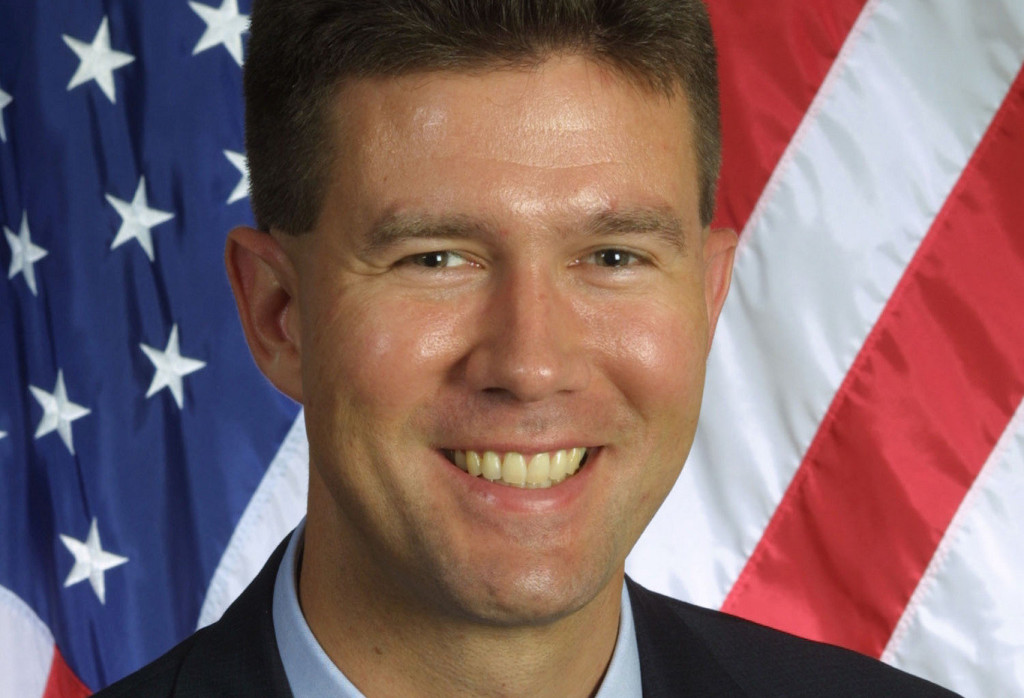
Last week, Alabama Secretary of State John Merrill and 14 other Secretaries of State sent a joint letter to President Joe Biden asking him to rescind Executive Order 14019. According to Health Resources and Services Administration, Executive Order 14019, “Promoting Access to Voting,” aims to promote and defend the right to vote for all Americans who are legally entitled to participate in elections. The order also expands access to, and education about, voter registration and election information, and combats misinformation, in order to enable all eligible Americans to participate in our democracy. The letter states, “Executive Order 14019 was issued without Constitutional authority nor Congressional approval. Executive Order 14019 calls for federal agencies to develop plans that duplicate voter registration efforts conducted at the state level and ignores codified procedures and programs in our state constitutions and laws. “If implemented, the Executive Order would also erode the responsibilities and duties of the state legislatures to their situational authority within the Elections Clause.” Secretary Merrill stated, “Not only is the administration of the election process a responsibility delegated to the states by the U.S. Constitution, but these unique policy decisions are best left to state officials. President Biden’s Executive Order 14019 is another example of the federal overreach and this administration’s attempt to federalize the election process.” Secretaries of State who joined Merrill in signing the letter include John Thurston (Arkansas), Cord Byrd (Florida), Brad Raffensberger (Georgia), Lawrence Denney (Idaho), Holli Sullivan (Indiana), Christi Jacobsen (Montana), Bob Evnen (Nebraska), Frank LaRose (Ohio), Steve Barnette (South Dakota), Tre Hargett (Tennessee), Mac Warner (West Virginia), and Ed Buchanan (Wyoming).
John Merrill: Redistricting controversies

Recently, the implementation of the newly drawn state legislative district lines has become a point of conversation in large part due to a lack of required performance by a very small number of county registrars in four Alabama counties. I want every Alabamian to know that while these mistakes were human errors, and everyone makes mistakes, I do not, have not, and will not ever accept human error as a sufficient excuse for poor performance and the lack of accomplishment of an assigned task. It is appropriate to let the people in our state know that in 2017, I formed a task force that studied the position and requirements of serving as a registrar in Alabama. This task force consisted of all stakeholders who work with the registrars, including, but not limited to, registrars, probate judges, circuit clerks, legislators, and sheriffs, as well as community interest groups from around the state. Over a period of six months, this task force developed comprehensive legislation to evaluate, assess, and implement changes to the responsibility of the position of registrar in Alabama. I asked State Senator Jimmy Holley and State Representative Alan Baker to sponsor this legislation, which would have dramatically changed the registrar appointment process and increased transparency and accountability from the people who hold the position throughout the state. Senate Bill 137 would have allowed the Secretary of State to provide an updated job description with more stringent minimum qualifications, demographic and county population considerations, required registrar trainings and assessments on an annual basis, clarified that the registrars serve at the pleasure of their appointing authority, and prevented registrars from reappointment if removed for cause, as well as several other significant measures. Unfortunately, there were several people, including members of the task force, as well as individuals who were opposed to the changes, who voiced their personal concerns to the members of the legislature. This resulted in the failure of this comprehensive piece of legislation. To be clear, the Secretary of State’s Office has no direct involvement in legislative reapportionment. According to the Constitutions of the United States and Alabama, that responsibility lies with the members of the Alabama Legislature. Our office facilitates the process by ensuring that the registrars receive the new district maps, which are prepared by the Alabama Legislature and provided to us by the Office of Legislative Reapportionment, in a timely manner. In November of 2021, we distributed maps to the County Boards of Registrars to ensure they had this important information as soon as possible to begin their important work. Currently, many counties are using paper maps to redraw district lines, which can often lead to human error when redrawing district boundaries. We anticipated that some counties might have difficulty assigning the new district lines, so beginning in late 2021, the Secretary of State’s Office made Geographic Information System (GIS) technology available to each county not currently using such mapping technology to reassign individuals who had been relocated based on legislative and congressional reapportionment. The use of GIS technology enables registrars to more accurately implement the new district maps approved by the Alabama Legislature. The Secretary of State’s Office offered to cover the licensing costs for the counties to use GIS. Unfortunately, no county accepted our offer to provide GIS, with many counties citing recurring financial obligations and initial workload concerns. It is our recommendation that the Alabama Legislature reexamine the current Board of Registrar system, as well as consider providing funding to ensure that boundary lines are drawn appropriately, even if that means engaging outside vendors. This would not be an unduly burdensome expense because reapportionment occurs only once a decade. With that being said, those registrars who have proven themselves unable to adequately perform their duties must face consequences. In the county where the most egregious dereliction of duties occurred, I sought and received the resignation of all three registrars involved. We have the power to correct this and future issues but only with the collaboration of the Alabama Legislature, county officials, and the Secretary of State’s Office. John Merrill has been the Secretary of State for Alabama since 2015.
Tie in Alabama GOP race between Jay Hovey and Tom Whatley means winner to be selected by lot
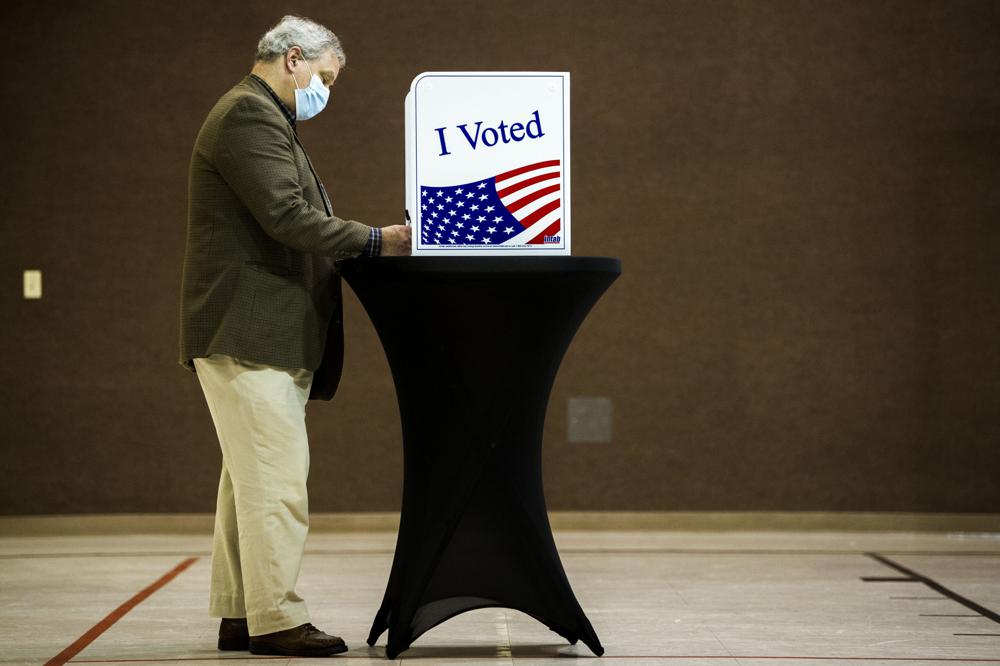
Alabama’s Republican Party has declared a tie in the primary race for a state Senate seat and says the winner will be chosen by lot. A state party news release says the party’s Candidate Committee held a hearing Saturday and said the District 27 primary race between Auburn City Councilman Jay Hovey and incumbent Tom Whatley was officially a tie. It said the winner would be determined in accordance with the state election code. News outlets reported that the committee held the hearing after provisional ballots were counted in the already close primary race and Hovey appeared to be ahead by only a single vote. The party did not release a reason for its decision. Hovey in a message to The Montgomery Advertiser on Saturday night accused the party of counting an unregistered voter to bring the race to a tie. “Certainly every vote is important and it’s unfortunate if anyone is mistaken that they are registered to vote,” Hovey wrote. It was unclear if he would challenge the decision. The state election code says that in the event of a tie in a legislative race, the Secretary of State shall decide the winner by lot. The district covers Tallapoosa, Lee, and Russell counties. The GOP news release did not provide details on when the winner would be selected or the method to be used. The Opelika-Auburn News reports that one method of deciding a tie by lot is to have the candidates draw slips of paper with one of them being marked as the winner. “It could be a roll of a dice, high card, or rock-paper-scissors,” Secretary of State John Merrill told AL.com. Whoever is declared the winner of the primary will run against Democrat candidate Sherri Reese of Opelika in the general election in November. Reese was unopposed for the Democratic nomination. Republished with the permission of The Associated Press.
Wes Allen wins GOP nomination for Secretary of State, Dem gubernatorial nominations set
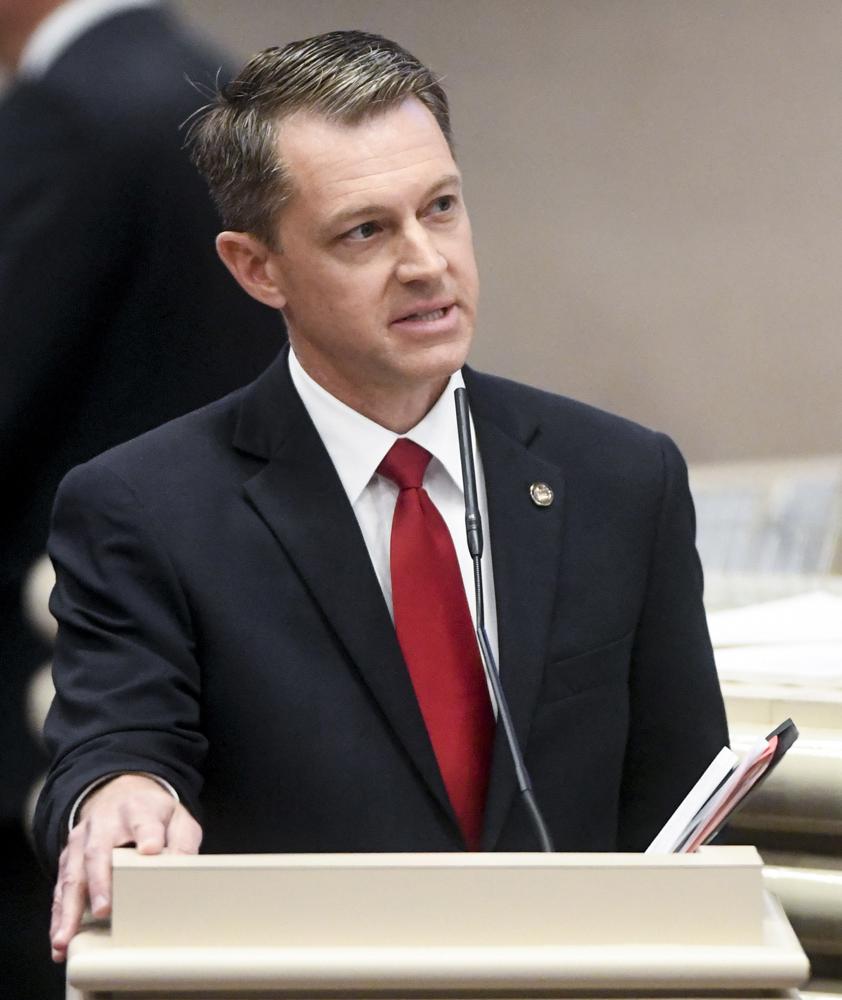
Voters selected the Republican nominee for Alabama’s top election official in the runoff Tuesday, and the general election race for governor was set as Democratic voters picked their gubernatorial nominee. Three other statewide races plus a U.S. House nomination also were on the ballot. Here is a look at the races: SECRETARY OF STATE State Rep. Wes Allen won the Republican nomination for secretary of state on Tuesday in contest that featured both candidates promoting the need to tighten election security in harmony with former President Donald Trump’s false claims that he lost the 2020 presidential race because of fraud. Allen defeated outgoing State Auditor Jim Zeigler and will face Democrat Pamela J. Laffitte, an Air Force veteran and corrections supervisor in Mobile County, in the general election to become Alabama’s top election official. Zeigler received the most votes among four candidates in the primary election in May, but Allen overcame the deficit. Allen, from Troy, previously served as probate judge in Pike County. Citing the potential for fraud, he opposed early voting and no-excuse absentee balloting and sponsored a law that barred “curbside” voting meant in part to make it easier for people with disabilities to cast a ballot. During the campaign, Zeigler dubbed himself a “watchman” against ballot fraud, so-called “ballot harvesting” and voting by mail. Trump has blamed all those and more for his loss to Democratic President Joe Biden, and many GOP voters believe him despite a lack of evidence. The current secretary of state, Republican John Merrill, couldn’t run again because of term limits, and the GOP nominee will be a heavy favorite to win in November. GOVERNOR Yolanda Rochelle Flowers defeated state Sen. Malika Sanders Fortier in the Democratic race for governor to become the first Black person to win a major party’s gubernatorial nomination in Alabama. Flowers, a career educator from Birmingham, narrowly led a six-person field in the May primary. In what will be the state’s first all-female gubernatorial race, she will be a decided underdog against Gov. Kay Ivey, who vanquished eight challengers to win the GOP primary without a runoff. Almost four times as many people voted in the Republican primary as the Democratic primary in May, and Republicans hold every statewide office. Flowers ran on a platform of “reconstructing” Alabama by rebuilding its economy and systems for education, health care, and criminal justice. Among other things, she advocated for a state lottery and a state minimum wage of $15. Fortier, a state lawmaker from Selma, campaigned on the theme of building the biblical “beloved community” promoted by the Rev. Martin Luther King Jr. by improving the state’s economy, schools, and health care. She is the daughter of former state Sen. Hank Sanders and attorney Faya Rose Toure. STATE AUDITOR Andrew Sorrell claimed the GOP nomination for state auditor by defeating Stan Cooke, a win that was tantamount to election since there’s no Democratic contender for the office. Sorrell, a state representative from Colbert County who led balloting in the May primary, tried to make election security a prime issue, saying a strong auditor is needed to appoint county registrars who will keep voter rolls clean. Cooke, a pastor from the Jefferson County town of Kimberly, claimed Alabama is at a crossroads where it could remain a conservative state or come under the control of liberal Democrats. Echoing Trump’s false claims of election theft, he highlighted the auditor’s role in appointing county election officials who can prevent Democrats from stealing elections. The current auditor, Republican Jim Zeigler, was barred from seeking another term. U.S. HOUSE Madison County Commission chair Dale Strong won the only runoff among the state’s seven U.S. House seats, claiming the Republican nomination for an open position in north Alabama’s 5th District. Strong defeated Casey Wardynski, a former Huntsville school superintendent. Strong handily led a six-candidate field with about 45% of the primary vote in May but couldn’t avoid a runoff. Strong will face Democrat Kathy Warner-Stanton of Decatur in the mostly Republican Tennessee Valley district in November. The seat was given up by U.S. Rep. Mo Brooks, who lost a runoff race with former business lobby leader Katie Britt for the seat being vacated by U.S. Sen. Richard Shelby. ALABAMA PUBLIC SERVICE COMMISSION Two Republican incumbents on the Alabama Public Service Commission faced challenges to keep their jobs on the utility-regulating board, and at least one won. Chip Beeker, a former Greene County commissioner first elected to the PSC in 2014, defeated Robert L. McCollum to win the GOP nomination for Place 2. Beeker portrayed himself as an opponent of Democratic environmental policies, while McCollum, a small business owner from Tallapoosa County, argued the commission is too close to Alabama Power Co. Jeremy Oden, a former state legislator from Cullman seeking his third term on the three-member commission, cast himself as a conservative bulwark against liberal environmental policies. He received the most votes in May in a four-way race for the Place 1 seat that saw attorney Brent Woodall, a PSC staffer, and Republican activist, come in second. No Democrat qualified for either position, making a victory in the Republican runoff tantamount to election. Republished with the permission of The Associated Press.
Election skeptics seek Alabama secretary of state’s office
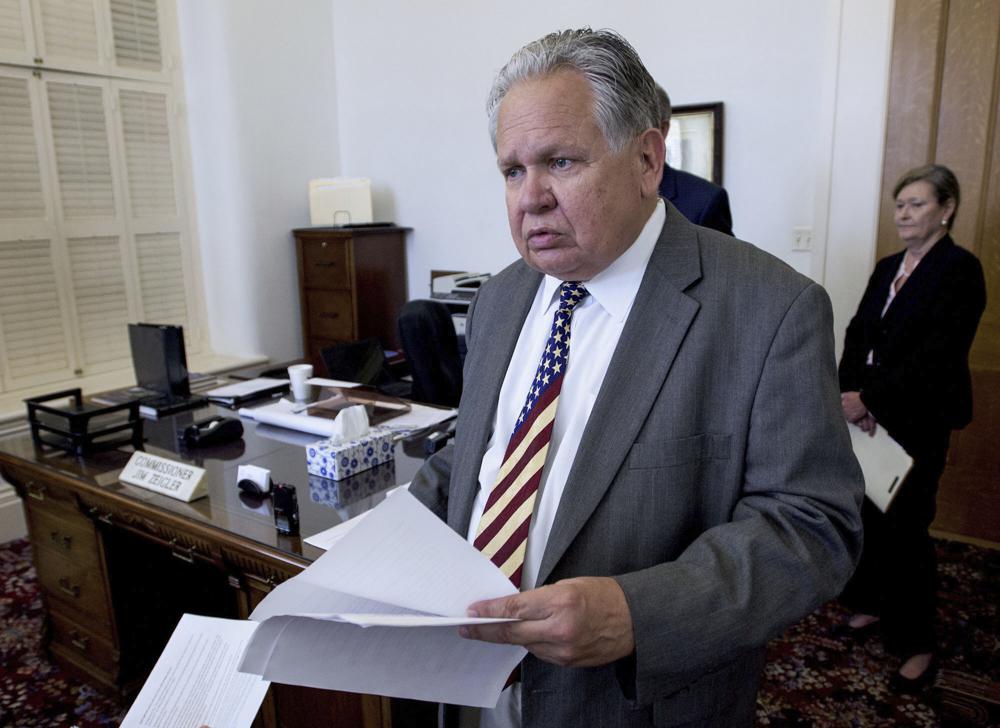
The Republican runoff for Alabama secretary of state features two candidates who have voiced concerns about election and voter roll integrity while opposing the expansion of early or absentee voting. One candidate, state Auditor Jim Zeigler, is endorsed by a key supporter of former President Donald Trump’s baseless claims that the 2020 election was stolen, and the other, state Rep. Wes Allen, is vowing to withdraw from a national system of shared voter registration data. The two face off Tuesday for the GOP nomination for secretary of state, the state’s top elections official. The winner will take on Democratic nominee Pamela J. Laffitte, a law enforcement officer from Mobile, in November. Interest in secretary of state contests across the nation has surged in the wake of the 2020 election as Republicans campaign on suspicions of voter fraud and, in some cases, deny the result of the last presidential election. Zeigler joined the “America First Secretary of State Coalition,” a slate of candidates who continue to question the legitimacy of the 2020 election, and is endorsed by Trump ally Mike Lindell, the MyPillow founder. Several America First candidates have secured GOP nominations, including Jim Marchant in Nevada, a key political battleground. Another candidate, Jody Hice, lost in Georgia as Trump tried unsuccessfully to unseat Georgia Secretary of State Brad Raffensperger. “I’m not an election denier. I’m an election questioner. There are many questions about the 2020 election,” Zeigler said in an interview. Allen is a former probate judge who oversaw elections on the county level and is a current member of the Alabama Legislature. In the House of Representatives, Allen sponsored bills to ban curbside voting as well as outside donations to election offices — legislation fueled by conservatives’ suspicions about Facebook founder Mark Zuckerberg’s donations to help election offices deal with the coronavirus pandemic. “A core function of our government is to administer safe, secure, transparent elections, and we can do that. I just don’t think that we need that private money infiltrating local jurisdictions that oversee our elections,” Allen said. The League of Women Voters of Alabama, Black Voters Matter, and other groups opposed the donation ban, calling it a possible voter suppression measure that would hurt the state’s poorest counties by prohibiting them from accepting grants and other help. Allen also has championed a proposal to remove Alabama from the Electronic Registration Information Center, or ERIC. The system allows the 31 participating states to securely share voter registration data, so they know if someone has moved to another state or died and remove them from their roll. “They are outsourcing who is taking care of our voter registration information. So, on Day 1, I’ll start the process of getting us out of ERIC,” Allen said. Zeigler has said he would review ERIC participation but has not campaigned on withdrawing. Alabama Secretary of State John Merrill, also a Republican, said the push to withdraw from ERIC would actually undermine election security because of its importance in maintaining clean voter rolls. He said the system has had “zero instances” of known problems. Merrill, who cannot run again because of term limits, said he is disheartened by the campaign trend to cast doubt on the integrity of elections and registration maintenance systems. “I am concerned about it because it breeds potential problems in people’s minds. When that happens, it can actually put people in a defensive posture and think, if their candidate loses, ‘Well, then the reason my candidate lost is my candidate got cheated.’ It could just be that you have a poor candidate, or your candidate is not very well funded, or your candidate did not have a good plan for a political campaign.” Merrill said. Allen was one of a handful of Alabama probate judges who stopped issuing marriage licenses to anyone to avoid giving them to same-sex couples after federal court ruled that gay couples had a right to marry. Couples had to go to a neighboring county until lawmakers changed the process. As a member of the Alabama Legislature, he also sponsored legislation, currently blocked by a federal judge from taking effect, that made it a felony to treat transgender minors with puberty blockers or hormones. Zeigler was elected state auditor in 2014 and cannot seek reelection because of term limits. Although the role of state auditor is to keep track of state property and has limited official duties, Zeigler turned the office into a public platform to play gadfly to Republican administrations. In 2016, Zeigler filed an ethics complaint against then-Gov. Robert Bentley, accusing him of misusing state resources after audio leaked of the governor having a romantically charged conversation with a top aide. “As the state auditor, I served as a watchman for the public against government waste, mismanagement, and corruption. As secretary of state, I will serve as a watchman for election integrity and participation,” he said. Both Allen and Zeigler oppose expanding voting beyond Election Day, such as early voting or allowing people to vote by absentee ballot without certifying an illness or travel-related reason. The Democratic candidate in the race, Laffitte, said Alabama should join the majority of states that allow early voting or no-excuse absentee ballot voting. People in both parties are busy with work, child care, and other obligations, she contended and would benefit by having more convenient methods to vote. She said voter turnout is low in Alabama because “we continue to run things as if we are running in the dinosaur days.” Republished with the permission of The Associated Press.
A look at nominations for five statewide offices
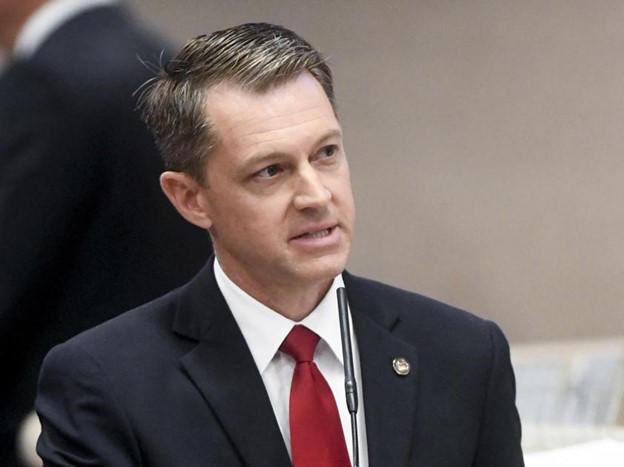
The party nominations for five statewide offices, including secretary of state on the Republican side and governor on the Democratic ticket are on the ballot in Tuesday’s primary runoff election in Alabama. The GOP nomination for a lone congressional seat also will be decided. Here is a look at the races: SECRETARY OF STATE With many Republican voters embracing former President Donald Trump’s false claims that fraud cost him the 2020 presidential election, the two remaining GOP candidates to become Alabama’s top elections official, secretary of state, campaigned on themes of tightening election security. Jim Zeigler, who was barred from seeking another four years as state auditor because of term limits, dubbed himself a “watchman” against ballot fraud, so-called “ballot harvesting,” and voting by mail. Trump has blamed all those and more for his loss to Democratic President Joe Biden, and many GOP voters believe him despite a lack of evidence. Rep. Wes Allen is a state representative from Troy who previously served as probate judge in Pike County. Citing the potential for fraud, he opposes early voting and no-excuse absentee balloting and sponsored a law that barred “curbside” voting meant in part to make it easier for people with disabilities to cast a ballot. The Republican nominee will face Democrat Pamela J. Laffitte, an Air Force veteran and corrections supervisor in Mobile County, in November. The current secretary of state, Republican John Merrill, couldn’t run again because of term limits. GOVERNOR Either Yolanda Rochelle Flowers or state Sen. Malika Sanders Fortier will become the first Black person to win a major party’s gubernatorial nomination in Alabama in the Democratic runoff for governor. Flowers, a career educator from Birmingham, narrowly led a six-person field in the May primary. She ran on a platform of “reconstructing” Alabama by rebuilding its economy and systems for education, health care, and criminal justice. Among other things, she has advocated for a state lottery and a state minimum wage of $15. Fortier, a state lawmaker from Selma, campaigned on the theme of building the biblical “beloved community” promoted by the Rev. Martin Luther King Jr. by improving the state’s economy, schools, and health care. She is the daughter of former state Sen. Hank Sanders and attorney Faya Rose Toure. The eventual winner face Gov. Kay Ivey, who vanquished eight challengers to win the GOP primary without a runoff. Nearly four times as many people voted in the Republican primary as the Democratic primary in May, and Republicans hold every statewide office. STATE AUDITOR Stan Cooke and Andrew Sorrell are vying for the Republican nomination to succeed Zeigler as state auditor. Cooke, a pastor from the Jefferson County town of Kimberly, claims Alabama is at a crossroads where it could remain a conservative state or come under the control of liberal Democrats. Echoing former President Donald Trump’s false claims of election theft, he is highlighting the auditor’s role in appointing county election officials who can prevent Democrats from stealing elections. Sorrell, a state representative from Colbert County who led balloting in the May primary, also tried to make election security a prime issue, saying a strong auditor is needed to appoint county registrars who will keep voter rolls clean. The eventual nominee will not have a Democratic opponent in the fall. U.S. HOUSE North Alabama’s 5th District features the only runoff for one of the state’s seven U.S. House seats. In the Tennessee Valley region, Madison County Commission chair Dale Strong and Casey Wardynski, a former Huntsville school superintendent, advanced to a runoff from a field of six candidates in May. Strong led easily with about 45% of the vote but couldn’t avoid a runoff. The winner will face Democrat Kathy Warner-Stanton of Decatur. The 5th District seat is being given up by U.S. Rep. Mo Brooks, who is in a runoff with former business lobby leader Katie Britt for the seat being vacated by U.S. Sen. Richard Shelby. ALABAMA PUBLIC SERVICE COMMISSION Two Republican incumbents on the Alabama Public Service Commission face runoff challenges to keep their jobs on the utility-regulating board. Jeremy Oden, a former state legislator from Cullman seeking his third term on the three-member commission, cast himself as a conservative bulwark against liberal environmental policies. He received the most votes in May in a four-way race for the Place 1 seat that saw attorney Brent Woodall, a PSC staffer, and Republican activist, come in second. First elected to the PSC in 2014, former Greene County Commissioner Chip Beeker also portrayed himself as an opponent of Democratic environmental policies in his campaign to retain the Place 2 seat. Beeker, who led the primary vote, is opposed by Robert L. McCollum, a small business owner from Tallapoosa County who contends the commission is too close to Alabama Power Co. No Democrat qualified for either position, making a victory in the Republican runoff tantamount to election.
Secretary of State John Merrill issues crossover voting reminder

The Primary Runoff Election is on June 21, 2022. Secretary of State John Merrill issued a press release to remind voters that if they voted in the Primary Election, they must vote in the same political party’s Primary Runoff Election. Since 2017, Alabama’s Crossover Voting Law has been in effect, and it prohibits crossover voting within a particular election cycle. For example, if a voter cast a ballot in the Republican Primary Election, then they are prohibited from casting a ballot in the Democratic Primary Runoff Election. That voter must cast a ballot in the Republican Primary Runoff Election and vice versa. However, voters who did not participate in the May 24th Primary Election or voters who strictly voted on constitutional amendments, are free to cast a ballot in either party’s Primary Runoff Election.


